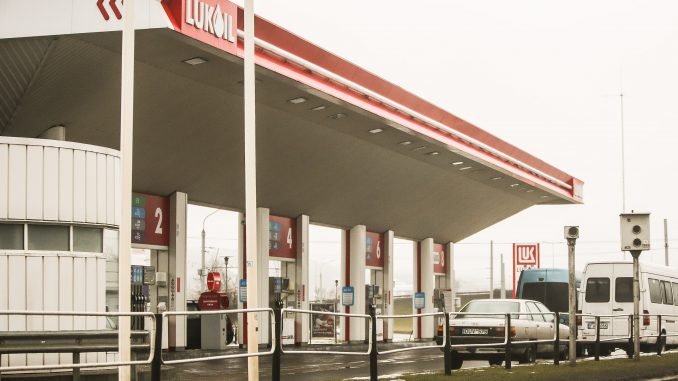
As global oil prices drastically decreased in 2014, Lukoil’s vice president Vadim Vorobjov said that it was time for the company to make structural adjustments and to put greater focus on the wholesale oil market. In the summer of 2015, when Lukoil announced its withdrawal from Estonia, the head of Lukoil Baltija Ivanas Paleičikas said that other major market players would also start leaving the Lithuanian market as it was simply too small.
(Starting on 11 January, this article and others like it will only be available to Corporate subscribers)
Lukoil Baltija generated €632.8 million in revenues last year, down a significant 13.1% on 2013. Lukoil Baltija‘s net profit also decreased by 3.3% to €3.331 million in the period.
However, Gitanas Nausėda, advisor to the SEB president, said that Lukoil executives did not miss the opportunity to use public relations to cover their exit from the Lithuanian market. At the beginning of 2015 a Facebook campaign targeting Lukoil called Do not fill up at Lukoil. Do not finance war began to spread on Facebook.
The campaign was joined by some of the country’s politicians and one photo with that slogan posted by conservative political activist Mantas Adomėnas on Facebook has been shared 870 times. At the time, Lithuanian President Dalia Grybauskaitė openly spoke about the fact that Lukoil was funding the Kremlin’s military aggression in Europe.
However, Nausėda said the reason for Lukoil‘s withdrawal is not the anti-Russian mood in Lithuania, but the group’s decision to focus on the markets and business chains that are critical for oil extraction and petroleum refining.
“Apparently, the expansion of petrol station network does not look very attractive, especially considering the fact that Russia’s energy sector is now feels like it is being compressed with pliers. Russia is fully experiencing the impact of Western sanctions, which are significantly reducing the key Russian market players‘ profits, narrowing their investment plans. Such a change in conditions and the fact that the situation will not improve in the near future, is forcing companies to take certain decisions that are related to their survival and to their future activities,” said Nausėda.

Be the first to comment